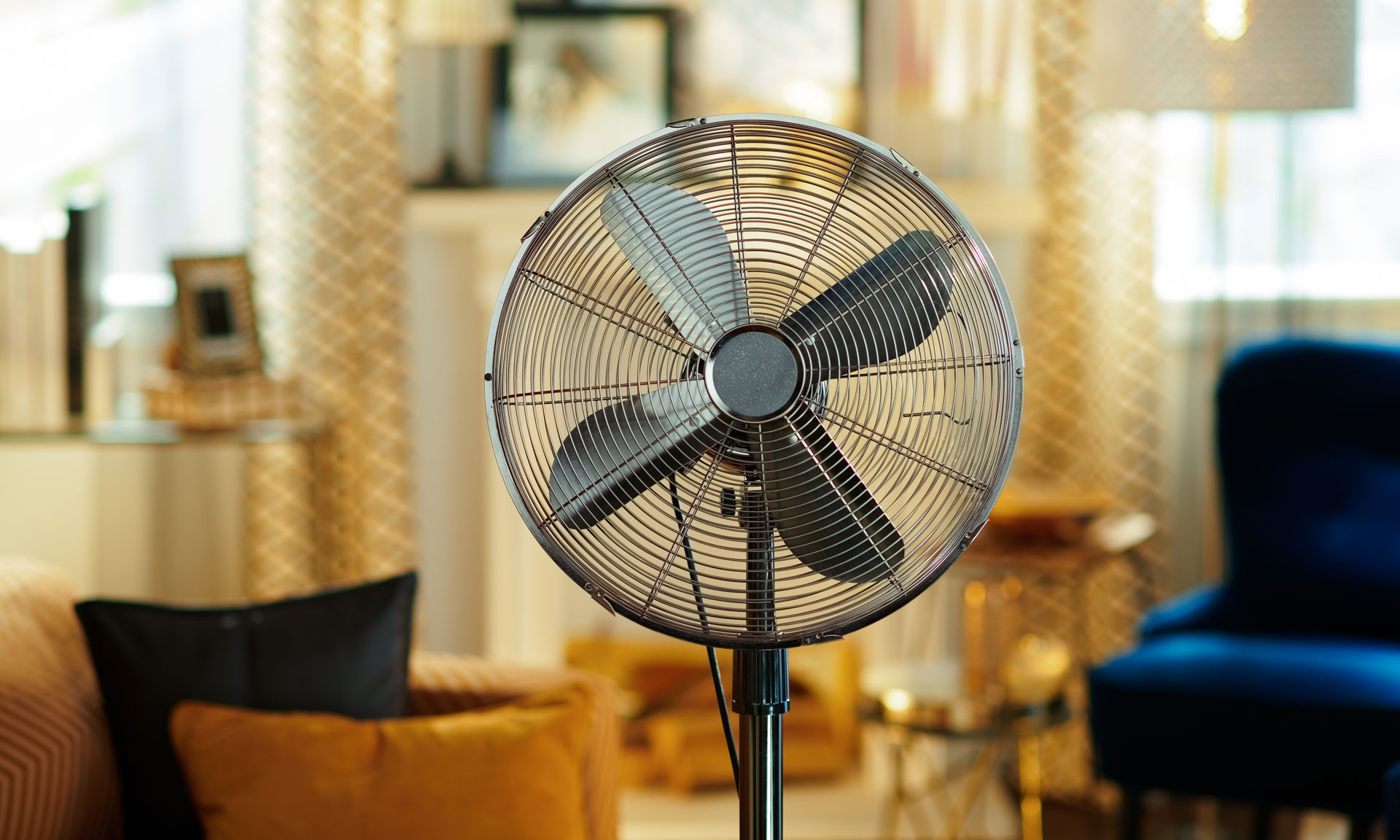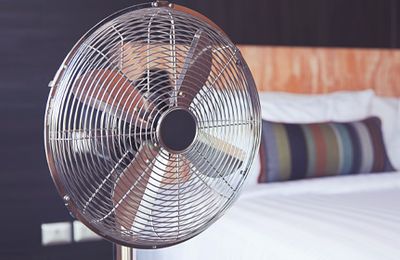By clicking a retailer link you consent to third party cookies that track your onward journey. If you make a purchase, Which? will receive an affiliate commission which supports our mission to be the UK's consumer champion.
5 mistakes you might be making with your electric fan

Summer weather is wonderful when you're on holiday, or enjoying a cool drink in a pub garden. But it's a different story if you're stuck in a warm, stuffy home.
A good electric fan can work wonders by wicking heat and sweat away from your body. To get the most out of it, though, you should be strategic about how and when you use it.
Here are our top five tips for making sure you're using your electric fan properly.
Still looking for the perfect electric fan to keep you cool? Jump straight to our electric fan reviews to discover the best.
1. Not thinking about where you're placing your fan
You might not have thought of placing your fan next to a window to draw in colder air from the outside. Or of using two electric fans to create a crosswind. But both of these can be sensible things to do, so long as you get it right.
If the air is cooler outside than inside – usually in the evenings – you can place your fan next to an open window, facing into the room, and it will draw cool air into your home.
If you have another window open at the same time, a fan facing that window will push the hot air out.
This isn't worth doing if it's hotter outside than in, though, as you'll be drawing hot air into your home.
Inspiring tips for improving the place you live in – get our Home Newsletter – it's free monthly
2. Pre-cooling your room ready for sleep, or running your fan overnight

Don't leave your fan on while you sleep either. Safety organisation Electrical Safety First says that you shouldn't leave your fan running overnight or while you're out (and, as we said before, leaving your fan on when you're not at home is pointless).
Some people also find that running a fan in their bedroom overnight dries their skin, mouth and nasal passages, and that the noise keeps them awake anyway.
If necessary, choose one with a timer, and set it to turn off after a short period of time.
Other ways to get a better night's sleep in a heatwave include:
- avoiding exercise in the few hours before bed, as exercise will increase your body temperature
- having a cool or lukewarm shower before bed
- avoiding hot, heavy, spicy meals before bed
- wearing lightweight pyjamas or a nightdress, made from natural fibres
- using lightweight, cotton sheets. Leave your feet out, if you can, as you'll lose heat more quickly through your extremities
- going to bed and getting up at the same time each day so that your body gets into a pattern. Take only a short nap (and in the early, rather than late, afternoon) if you feel sluggish after lunch and need a siesta.
Find out more about sleeping better, including the pros and cons of tracking your sleep with a fitness tracker.
3. Forgetting to clean before setting your fan up for summer
It's wise to dust and vacuum before you set up your fan for summer.
As a fan circulates air around a room, any dust or pollen that's in the air will be circulated too: not what you want if you suffer from allergies.
Like any other object, fans can gather dust when not in use: the built-up dust will be circulated round the room when you switch the fan on.
If you're using your fan for the first time in a while, give it a quick clean. Instructions will vary from manufacturer to manufacturer (you may need to unscrew the back of the fan to access the blades), but will normally involve using a soft dry cloth to wipe the blades.
Make sure you don't accidentally bend the blades or get liquid in the motor.
You can help lessen your workload by storing your fan in its box or bag to protect it from dust in autumn and winter.
Some fans can't be opened up for cleaning, which isn't ideal for allergy sufferers.
All our Best Buy electric fans can be cleaned without too much effort.
4. Not putting ice or cold water in front of your fan

You're basically getting your fan to work a bit like an air conditioner, where ice absorbs heat from the air. This won't be as effective as using an air conditioner, but it's both cheaper and friendlier to the environment than buying one.
See all our air conditioner reviews.
5. Choosing the wrong type of fan
There are two main types of fan: desk fan and tower or pedestal fans. We test both types (but not ceiling fans, as they're a rare sight in UK homes).
Desk fans are designed to be placed on a desk or table. A desk fan will cool you down if you're right next to it, but it won't create a strong breeze - otherwise it would be blowing all your papers about.
A pedestal or tower fan stands on the ground, and is designed to cover a whole room.

Make sure you buy the right type of fan for your living situation.
If there are two of you working from home at separate desks in the same room, for example, you may well need two desk fans, or a tower or a pedestal fan. No one wants to spend the summer fighting over who gets the desk fan.
Fridge freezers have a tendency to break down in hot weather. If that happens to you, we'll help you choose the best for your budget: see our fridge freezer reviews.
Popular electric fans on Which.co.uk
Below, you can compare the pricing and availability of electric fans popular with Which? members over the last 12 months.
While popular choices can help you form a shortlist, they aren't necessarily the best available. Read our advice on the best electric fans to discover which models aced our stringent lab tests.
Find out everything you need to know about buying an electric fan.








